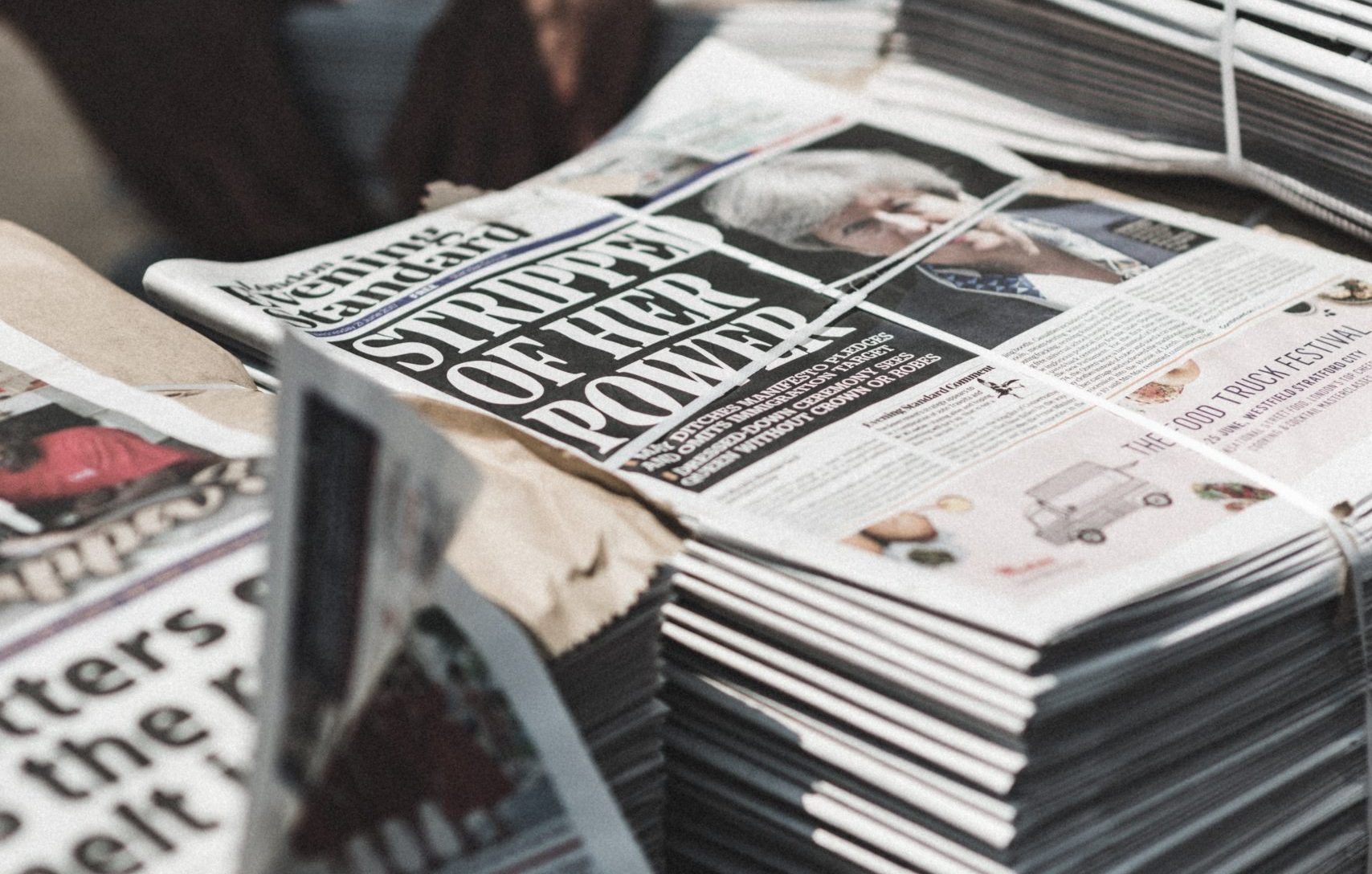 Nada Khan is an Exeter-based GP and clinical academic, and an Associate Editor at the BJGP.
Nada Khan is an Exeter-based GP and clinical academic, and an Associate Editor at the BJGP.
The relationship between scientists, GPs and the media has not always been a happy one, with perceptions that news stories present mixed health-related evidence to the general public. Unclear messaging about diagnostic tests, screening and medicines can lead to confusion and patients worrying unduly about their care. Take, for instance, the controversial media coverage of statins and its influence on patient and medication taking behaviour, possibly to the detriment of cardiovascular risk reduction.1 As a recent example, a question/answer segment in the Daily Mail focussed on the risk of dementia associated with proton pump inhibitors, one of the most commonly prescribed long-term medications in the UK.2 Some may argue that the mixed evidence for the association between PPIs and dementia means we can’t make any firm conclusions about long-term risks but articles like this might, just like the statins example, drive patients who are appropriately on these medications to be fearful about taking them. What are the tensions between the media and scientists, and the implications for researchers and general practice consultations?
The perceived tension between the media and scientists
Scientists and journalists have sometimes ‘discordant norms and values’ in the context of how research findings should be communicated to the wider public.3 Research articles are typically not written with plain English summaries, and the tricky job for journalists is to translate the science for the masses. While academics use research articles to communicate their work to other researchers, journalists are working to a different pressure – their job is to write stories that also ‘sell’ their brand or newspaper or to get the most webpage clicks by making the story appealing to the public. This can lead to a tension between how researchers and journalists want to communicate scientific or medical research. For many academics, the media is viewed as a poor vehicle for communication of accurate information given that it is ‘prone to sensationalism, sins of omission, and sheer inaccuracy’.4 Qualitative studies of journalists and their perspectives, however, show that they share concerns about the accuracy and social impact of their reporting, often with a strong commitment to getting out a story to inform the public about research findings.4
Let’s be clear, the public are not going to be sitting flipping through the pages of the most recent issue of the BMJ or the Lancet to critically appraise current medical research and contextualise the findings to their individual needs.
Despite the best intentions of some journalists, media summaries of scientific research are prone to poor quality reporting, often not reporting details of research studies or whether research findings were in line with previous research or presented statistically significant results.5 Potential benefits of diagnostic tests are oversold, with potential harms downplayed. An evaluation of 500 US health news stories demonstrated that a third did not quantify harms of treatments or alternative options, suggesting that consumers reading these news stories may have unrealistic expectations of the benefits or options available to them.6 Journalists felt uncomfortable talking about the harms of medical interventions or tests, especially when faced with positive or personal accounts of patients who benefited from them, risking underselling these real life stories.7
The importance of getting the story right
Let’s be clear, the public are not going to be sitting flipping through the pages of the most recent issue of the BMJ or the Lancet to critically appraise current medical research and contextualise the findings to their individual needs. They will instead be flipping the pages of their daily tabloid or scrolling through news media websites or social media. And while media constructions of health topics influence health behaviours, this can be a positive effect if research is reported accurately. Journalists, researchers, university press officers and journals need to work closely to ensure clear, consistent messaging and clear information with the public.
The quality of university press releases play a role in how accurately academic research is portrayed in the media, especially as information from press releases are likely to be included in news stories.8 If you are publishing and want your research to be reported accurately, prepare carefully-worded, accurate and clear press releases alongside your press office. Remember that getting media hype for a paper can be a good way to communicate your findings to the public and to get more exposure as an academic, and that this is an important way translate the impact of your research into practice or patient behaviour. It makes sense to work with journalists to ensure that research is communicated accurately and represents the research. Preparing press releases and engaging with the press is an opportunity to work with, and not against journalists to tell the real story of your research.4
What it means for GPs and trust-based relationships …unlike most journalists, we have been trained with the skills to go back to the original research to read, and critically assess the quality of the evidence our patients are reading about in the media…
When the translation of medical research into the mass media doesn’t go well, inaccurate and unbalanced health reporting can lead to unrealistic demands or fear amongst patients. GPs are no longer the sole fount of medical knowledge or trust, and it’s no surprise that the information that patients use, and decisions that patients make about their health are likely to be informed by these multiple sources of knowledge in the press and social media.9 Despite inaccuracies and omissions, patients will trust these alternative sources, but may still present to us with their questions, concerns and decisions. GPs need to think carefully about how to build trust and provide contextualised and individual information to patients based on their background, information needs, requests and concerns. But we need to be informed ourselves, and unlike most journalists, we have been trained with the skills to go back to the original research to read, and critically assess the quality of the evidence our patients are reading about in the media, and to translate research to our patients.
Will using a PPI for more than four years increase my patient’s risk of dementia? I wouldn’t honestly know the answer offhand if a patient came to me asking this question clutching their copy of the Daily Mail. But given the prevalence of inaccuracies in health reporting, we need to be prepared for how to approach queries in a manner that works for us and our individual patients. Not an easy task, but one that can make an impact to get evidence safely into practice.
Deputy Editor’s note: See also https://bjgplife.com/the-fourth-estate-friend-or-foe-to-general-practice/
References
1. Matthews A, Herrett E, Gasparrini A, Van Staa T, Goldacre B, Smeeth L, et al. Impact of statin related media coverage on use of statins: interrupted time series analysis with UK primary care data. BMJ. 2016;353:i3283.
2. Scurr M. I’m worried heartburn pills will raise my risk of dementia, is that true? Ask DR MARTIN SCURR. Daily Mail. 2024 18 March 2024.
3. MacGregor SC, A. Blending research, journalism and community expertise: A case study of coproduction in research communication. Science Communication. 2020;42(3):340-68.
4. Leask J, Hooker C, King C. Media coverage of health issues and how to work more effectively with journalists: a qualitative study. BMC Public Health. 2010;10:535.
5. Kininmonth AR, Jamil N, Almatrouk N, Evans CEL. Quality assessment of nutrition coverage in the media: a 6-week survey of five popular UK newspapers. BMJ Open. 2017;7(12):e014633.
6. Schwitzer G. How do US journalists cover treatments, tests, products, and procedures? An evaluation of 500 stories. PLoS Med. 2008;5(5):e95.
7. O’Keeffe M, Nickel B, Dakin T, Maher CG, Albarqouni L, McCaffery K, et al. Journalists’ views on media coverage of medical tests and overdiagnosis: a qualitative study. BMJ Open. 2021;11(6):e043991.
8. Sumner P, Vivian-Griffiths S, Boivin J, Williams A, Venetis CA, Davies A, et al. The association between exaggeration in health related science news and academic press releases: retrospective observational study. BMJ. 2014;349:g7015.
9. Rapley T. Distributed decision making: the anatomy of decisions-in-action. Sociology of Health and Illness. 2008;30(3):429-44.
Featured photo by Thomas Charters on Unsplash






